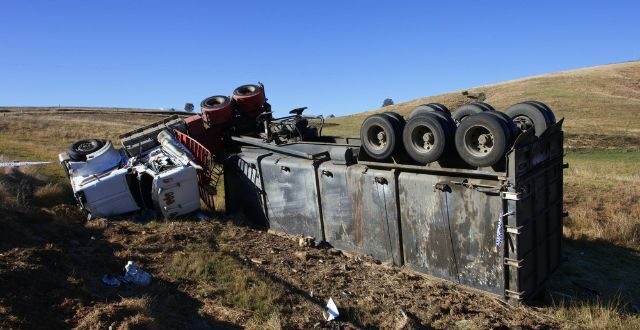Encountering a truck accident can be a life-changing event. In the state of Illinois, the repercussions of such an accident can weigh heavily on victims, who must navigate legal complexities while recovering from injuries.
Knowing the resources and legal avenues available is paramount in seeking justice and compensation. In this article, we explore the essential steps and support systems for truck accident victims in Illinois.
Navigating the Legal System: Finding the Right Attorney for Truck Accident Victims

Selecting the right legal representation after a truck accident is vital. A seasoned attorney, particularly one specializing in personal injury and truck accidents in Illinois, offers invaluable assistance navigating the legal process. With expertise in Illinois law and a deep understanding of the trucking industry, they are equipped to handle the complexities of these cases effectively.
A proficient attorney will conduct a thorough investigation, often enlisting accident reconstruction experts, to gather crucial evidence. Their priority is to establish liability and ensure all accountable parties are held responsible.
Having a dedicated legal team can significantly alleviate the stress for accident victims. It’s crucial for victims to seek guidance from Illinois truck accident lawyers before considering any settlement offers from insurance companies. Initial settlements may not adequately cover the damages and long-term consequences of the accident.
It’s noteworthy that reputable truck accident attorneys typically operate on a contingency basis, ensuring they are incentivized to secure the best possible outcome for their clients.
Understanding Truck Accident Laws in Illinois
Truck accidents in Illinois fall under a mix of federal and state regulations, with the state following a modified comparative negligence law. This law means that victims might see their compensation reduced if they’re partly at fault, highlighting the importance of grasping this system for understanding how damages are awarded.
Illinois imposes strict regulations on commercial vehicles, covering driving hours, maintenance, and hazardous material transportation.
Violations of these rules can heavily influence liability and negligence cases, shaping outcomes significantly. Time sensitivity is crucial post-accident, as Illinois has a statute of limitations for filing lawsuits, emphasizing the need for prompt action to preserve legal options.
Understanding the state’s higher insurance requirements for commercial trucks compared to passenger vehicles is vital for navigating insurance claims effectively, given the potential for more extensive damages and injuries.
Seeking Medical Assistance and Documenting Injuries after a Truck Accident
After a truck accident, seeking immediate medical attention is vital for both health recovery and legal purposes. Consulting healthcare professionals ensures a thorough assessment of injuries, crucial for any future compensation claims, as medical records serve as evidence.
Documenting everything during medical care is key. Keep detailed records of doctor’s visits, treatment plans, medications, and photographic evidence of injuries and the accident scene.
Consider both physical and psychological impacts, as some symptoms may appear later, and continuous documentation post-accident provides a comprehensive overview for insurance and court proceedings.
Note how injuries affect daily life, including work, lifestyle, and routine disruptions, as these details contribute to calculating non-economic damages like pain and suffering or loss of enjoyment of life.
Exploring Truck Accident Claims and Compensation in Illinois

Filing a truck accident claim in Illinois involves understanding two main types of damages: economic and non-economic. Economic damages cover measurable losses like medical expenses and lost earnings, while non-economic damages address subjective experiences such as pain and emotional distress.
In cases of severe negligence, punitive damages may be awarded to punish the responsible party and deter future misconduct, though they’re not guaranteed.
Proving negligence is key to a successful claim, which entails showing that the truck driver or another party failed to meet the expected standard of care, leading to the accident and resulting harm.
Partnering with an experienced attorney is crucial for navigating the complexities of compensation claims, from accurately valuating your claim to negotiating with insurers and representing your interests in court if needed.
Utilizing Support Groups and Community Resources for Emotional Recovery
After a truck accident, addressing emotional trauma is crucial alongside physical recovery. Support groups, found in hospitals, social services, or online, provide a platform for victims to share experiences and coping strategies, fostering connection and mutual support. Counseling is also beneficial for managing emotional aftermath.
Professional therapists assist victims in processing experiences and acquiring skills to handle anxiety, depression, or post-traumatic stress disorder following such events.
Community resources, like local non-profits, offer assistance from financial aid to advocacy services, easing the burden of paperwork and providing referrals to medical and legal aid.
Recovery from a truck accident involves physical, emotional, and financial restoration, necessitating the utilization of available resources to support the journey towards healing and prevent facing challenges alone.
Overall, navigating the aftermath of a truck accident in Illinois requires a comprehensive approach that addresses legal, medical, and emotional needs. With the right guidance and support, victims can pursue the justice and compensation they deserve, ensuring a path towards recovery and closure.
 khamush.com Lifestyle | Motivation | Poems
khamush.com Lifestyle | Motivation | Poems



